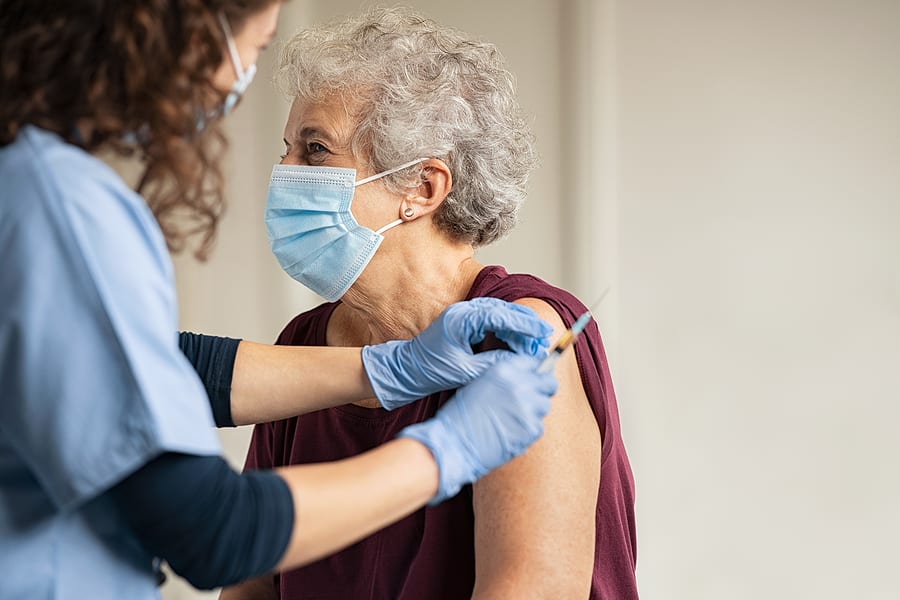New York medical facilities have begun distributing COVID vaccines to residents across the city. Both the Pfizer and Moderna vaccines are being administered in NYC. Many residents are eager to receive the vaccine. However, the supply of the shot is not nearly enough to reach everyone at this time. It may take some time for those over 65 to receive the vaccination, as healthcare faculty and other frontline workers are also in need of the vaccine. This article will discuss what New York seniors should know about the vaccine and its distribution.
Distribution of COVID Vaccine in New York State
According to Governor Cuomo, the state is on track to have distributed over 911,000 vaccines by January ninth. Over 3,700 vaccination sites will be established across the state, with over 600 already rolling out the vaccine. The plan for vaccination distribution is based on CDC guidelines.
Frontline workers and healthcare professionals are encouraged to make vaccination plans. After the first wave of frontline workers, elderly individuals 75 and older will be eligible to receive the vaccine. Those 65 and older will become eligible for the vaccination soon after. For more information on the NYS distribution plan, click here.
What this Plan Means for Elderly Individuals
For many elderly individuals, the vaccine may be available in late winter or early spring, depending on vaccine stock and how quickly it can be distributed. As of January 11th, we are in Distribution stage 1B. 1B covers elderly people 75 and older, and phase 1C will cover those 65 and older. Other individuals receiving long-term care should receive the vaccine within phase 2.
Am I Eligible for the COVID Vaccine?
Thankfully, the state of New York has created a webpage to help you determine if you are eligible for the vaccine. This page can help you determine whether or not you are eligible to receive the vaccine. If you are eligible, the page can help you then schedule an appointment for one.
Is there a Second Shot?
The initial COVID-19 vaccines, Pfizer’s and one from Moderna take two doses. If you receive a 2-part vaccine, you will need to make a second, follow-up appointment. You may receive a card at your first appointment that denotes where, when, and which type of vaccine you received. Your vaccination status will be tracked by the state’s database, the NYSIIS. This stands for the New York State Immunization Information System. Overall, this is to ensure that your vaccination status is kept on file. Additionally, this can prevent over-vaccinations.
Do I Have to Pay for the Vaccine?
The federal government is paying for the vaccine. However, some healthcare facilities may charge for the shot to be administered. Thankfully, the Centers for Medicare & Medicaid Services will cover this cost for Medicare beneficiaries.
Should I Wear a Mask After Receiving the Vaccine?
According to the CDC, it is still important to wear a mask, even after receiving the vaccination. It can take several weeks after the second dose to build immunity. It is also not clear whether or not a vaccinated individual can catch the virus and transmit it to others. For your safety, and the safety of others, continue wearing a mask, even after receiving your vaccination.
Additional Information
For more information, visit the CDC FAQ page for the vaccine. Additionally, there is an 83-page document from NYS on their vaccination program.
Safe Harbor Healthcare Services does not provide medical or healthcare advice via articles. This material has been prepared for informational purposes only, and is not intended to provide, and should not be relied on for medical advice.
Safe Harbor Healthcare Services has been providing excellent home care on Staten Island since 1967. Our services help the elderly and disabled live safely and independently; while giving their families the peace of mind they need. For more information, contact Safe Harbor by clicking here, or call us at (718)-979-6900.
SafeHarbor is working 24 hours to continue providing safe and quality home care services during COVID-19. Let us know if we can help you during these difficult times. Information regarding the novel coronavirus is changing daily. For more up-to-date information, check the CDC and WHO websites.

